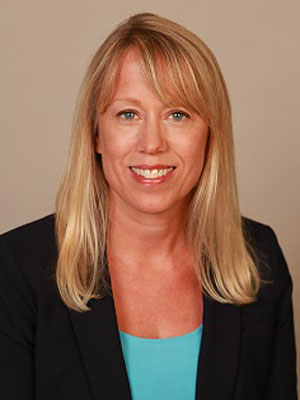Allyson Zimmermann is Executive Director at Catalyst Europe, where she works with leading global organisations, developing and supporting Catalyst members in advancing their diversity and inclusion initiatives to make positive change for women in the workplace. As a citizen of the US and Switzerland, she currently resides in Zurich, previously having lived and worked in five other countries. Allyson holds a B.A. in Communications and German from the University of Minnesota and outside of her role at Catalyst she is a professional coach.

“…It’s key that women do not fall into the trap of the ‘good student syndrome’. It’s not enough to sit at your desk, keep your head down and work hard. To negotiate the best deal, women need to make sure their accomplishments are known, ensure they seize opportunities and find ‘sponsors’…”
The gender pay gap – a global problem

On 24th October in Iceland, thousands of women left their desks at 2.38pm to protest against the country’s gender pay gap, the time which leaves them working for free for the rest of the day. Iceland is known for being one of the most advanced countries on gender equality; yet women earn 14 – 18% less than a man makes.
In the UK, the pay gap currently stands at around 18% meaning a woman on average earns around 82p for every £1 earned by a man.
The World Economic Forum recently estimated that the global gender gap in pay would not close until 2186, i.e., for another 170 years. The global challenges of wage disparity are real and need to be addressed.
Unfortunately, the disparity in earnings starts on day one and widens to a large gap for women in the workplace over time. Women MBAs in Europe are paid, on average, €4,255 less in their first job than men MBAs, according to Catalyst research. Over a five-year period this gap had ballooned to over €36K, despite the women being equal to the men in qualifications, experience and aspirations.
This isn’t because women don’t negotiate effectively. Women do negotiate, and almost as often as men, but they don’t always get the pay off. We found roughly the same percentage of men and women negotiated for a higher salary during the hiring process, 47% of women vs. 52% of men. Recent research highlights that while women do negotiate as often as men, they often do not receive the same outcome, so what can be done to solve this?
Transparency equals power
Pay transparency is one action that can be taken to narrow the wage gap. It provides women with the information they need to better negotiate for fair and equal pay. If women don’t know their ‘worth’ and what they should be paid, it can be hard for women to ask for a pay rise.
The UK is leading the way on this issue and we applaud the new Government regulation, which will require companies, with over 250 employees, to publish information on their gender pay gap and gender bonus gap on an annual basis. This is expected to come into force in early 2017.
To become an employer of choice and to attract top talent, companies need to be taking this issue seriously. A KPMG study recently found that more than half (55%) of women undergraduates would be influenced by a sector’s reputation on gender equality when considering a job, compared to just over a quarter of men. To ensure businesses are attracting the top talent, they must put a plan into action to minimise their pay gap.

Men are promoted based on potential, whereas women are promoted based on performance
Part of this gender bias is that men are promoted based on potential whereas women are often promoted based on proven performance. Because of this, Catalyst found, women actually tend to make more money by staying with the same employer than by switching jobs, while the opposite is true for men.
It’s key that women do not fall into the trap of the ‘good student syndrome’. It’s not enough to sit at your desk, keep your head down and work hard. To negotiate the best deal, women need to make sure their accomplishments are known, ensure they seize opportunities and find ‘sponsors’, i.e., senior people who have strong influence in the company’s decision-making, who will advocate for them. Catalyst research shows that women who proactively make their achievements visible advanced further, were more satisfied with their careers and had greater compensation growth.
Finally women must build networks. Catalyst research has found that gaining access to powerful others, that is, proactively networking with influential people, can have a great impact on women’s career advancement. Social media networks have also revolutionised networking and mean that women, while often dealing with the additional pressures of home-life, can build an external network at times convenient to them.
Closing the UK’s gender pay gap could boost overall female earnings by £80bn and the GDP by around £170 according to PwC’s Women in Work index.
Tackling the gender pay gap is an opportunity for women, men, business, and society as a whole. It’s a win-win for all.
https://twitter.com/catalystinc
https://twitter.com/allyzimmermann
https://www.youtube.com/user/CatalystClips





